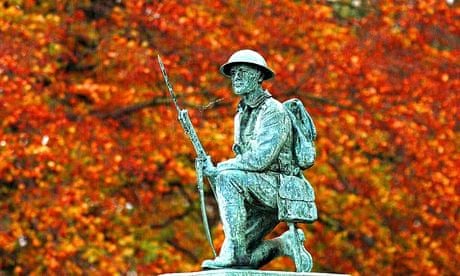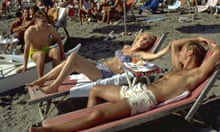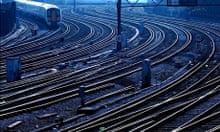"Poetry," Wordsworth reminds us, "is the spontaneous overflow of powerful feelings", and there can be no area of human experience that has generated a wider range of powerful feelings than war: hope and fear; exhilaration and humiliation; hatred – not only for the enemy, but also for generals, politicians, and war-profiteers; love – for fellow soldiers, for women and children left behind, for country (often) and cause (occasionally).
Man's early war-songs and love-songs were generally exhortations to action, or celebrations of action, in one or other field, but no such similarity exists between what we now more broadly define as love poetry and war poetry. Whereas most love poems have been in favour of love, much – and most recent – war poetry has been implicitly, if not explicitly, anti-war. So long as warrior met warrior in equal combat with sword or lance, poets could celebrate their courage and chivalry, but as technology put ever-increasing distance between combatants and, then, ceased to distinguish between combatant and civilian, poets more and more responded to "man's inhumanity to man". I have chosen poems from both the old "heroic" and the modern "humane" traditions. With so many fine poems to choose from, on another day I might have selected another team.
1. The Battle of Maldon (Anonymous)
An early battle poem written in Old English, this gives a vivid and poignant account of the last stand of Anglo-Saxon warriors against a troop of Viking invaders, and includes a classic articulation of the heroic code.
2. The Charge of the Light Brigade by Alfred Lord Tennyson
Tennyson didn't see the British cavalry charge against Russian artillery in the Crimean war – other than with his mind's eye – but his lifelong absorption in Arthurian legend and chivalry enabled him to take his place, imaginatively, with the "Noble six hundred". He celebrates their courage, but recognising that "Someone had blundered", begins to question the value of the heroic code.
3. Drummer Hodge by Thomas Hardy
In the 50 years between the writing of Tennyson's Charge', and this heart-wrenching poem of Hardy's, the new "humane" tradition had come to challenge nine centuries of the old "heroic" one. Hardy didn't see the Boer war burial party "throw in Drummer Hodge to rest / Uncoffined – just as found", but his lifelong absorption in the little world of Wessex enabled him, imaginatively, to witness the boy's graveside.
4. Christ and the Soldier by Siegfried Sassoon
On 1 July 1916, Sassoon saw the carnage of the opening of the Battle of the Somme and, a month later, wrote this brilliant but savagely anti-Christian poem (which, significantly, he never published).
5. Strange Meeting by Wilfred Owen
Not the most flawless of Owen's poems, but the most visionary, this reaches back to the heroic epics of Homer and Virgil and forward to voice in its last lines a compassionate humanity in striking contrast to the last speech of Byrhtnoth, the doomed warrior in The Battle of Maldon.
6. Aristocrats by Keith Douglas
This fine elegy for fellow officers killed in the Battle of El Alamein again acknowledges both ancient and modern traditions of war poetry. Douglas recognises at once the chivalry and the obsolescence of cavalrymen on mechanical mounts duelling in the desert.
No poem written since MCMXIV (Latin numerals for 1914, as found on first world war memorials) speaks so eloquently, so poignantly, of the future awaiting the children at play, "the men leaving the gardens tidy, / The thousands of marriages", all seen as in a fine-grained sepia photograph.
8. Requiem for the Croppies by Seamus Heaney
The 20th-century Nobel prize-winning Irish poet gives a voice to his voiceless peasant countrymen massacred in the 1798 rebellion against the British. They were nicknamed croppies because of their closely cropped hair-style copied from the sans-culottes of the French Revolution, who cropped their heads to distinguish themselves from wig-wearing aristocrats. The barley in the croppies' pockets was to have been their food.
9. Platform One by Ted Hughes
Hughes's father and uncle fought in the Great War and one senses their shadowy presence behind this elegy for those who did not survive it as they did. Focusing on Platform One's larger-than-life bronze statue in Paddington station, his imagination travels from a peacetime present, in which holiday-bound families are "scrambling for their lives", to a past in which soldiers left that platform to scramble for their lives – and lose them – on foreign battlefields.
10. The Death of the Ball Turret Gunner by Randall Jarrell
Many of the most moving and memorable poems to emerge from the second world war were written by Americans. Jarrell, who served in the US Army Air Corps, was concerned with victims, the most famous of whom was the subject of this poem. To get the full force of it one needs to know that a ball turret was a plexiglass sphere set into the belly of a bomber and contained two machine guns and one small man – he had to be small. When this gunner tracked with his machine gun a fighter attacking his bomber from below, he revolved with the turret. Hunched upside down in his little sphere, he looked like a foetus in a womb. Jarrell's gunner wakens from a dream of life to the reality of death: "'When I died they washed me out of the turret with a hose." Only with the last word – (and it would have been a steam hose) – does the full force of the abortion metaphor hit us.










Comments (…)
Sign in or create your Guardian account to join the discussion